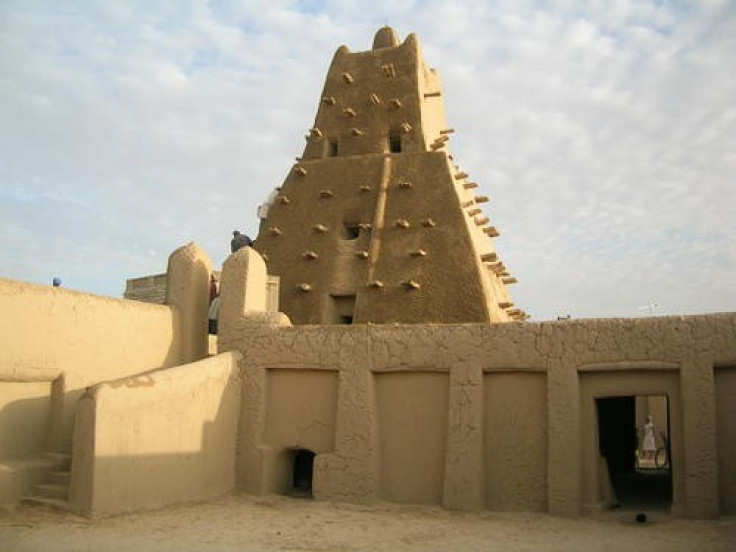Destruction Of Timbuktu Tombs Threatens Mali's Cultural Identity, Unesco Head Says

Less than a week after the U.N.'s cultural agency Unesco added Timbuktu to a list of historically significant sites in danger, Islamic extremist rebels, who have taken control of the fabled city in northern Mali, began a systematic attack on its centuries-old cultural heritage.
The militant Islamist group Ansar Dine, which has supposed ties to a North African branch of Al Qaeda, began demolishing the city's 500-year-old tombs Saturday. The tombs, belonging to saints revered within the tradition of Sufi Islam, have been declared idolatrous by the conservative Islamists.
The attack on Timbuktu's cultural heritage is an attack against this history and the values it carries -- values of tolerance, exchange and living together, which lie at the heart of Islam, Unesco Director-General Irina Bokova wrote in a CNN opinion article.
This destruction is deliberate, undertaken in cold blood to catch the world's attention and destroy the last defenses of Malian identity and strength.
Timbuktu's history dates back to the late fifth century as a seasonal outpost for the nomadic Tuareg people. It attained legendary status during the 15th and 16th centuries as one of the great cities of the Songhai Empire, experiencing a golden age brought on by wealth amassed from the trans-Saharan trade of gold and salt and revered as a center of cultural exchange and learning for Islamic scholars.
Mali has been in a state of political disarray following a military coup in March. Ethnic Tuareg rebels in the north, joining forces with Ansar Dine, capitalized on the instability in the southern capital of Bamako, taking over nearly two-thirds of the country in April, including Timbuktu and other historically significant sites.
Ansar Dine has since split with the Tuareg rebels, who have a less conservative interpretation of Islam, leading to armed conflict between the two factions. Last week, Ansar Dine pushed Tuareg rebels out of Timbuktu, giving it the freedom attack the city's cultural heritage, which the International Criminal Court has deemed a war crime.
The only tribunal we recognize is the divine court of Sharia, Ansar Dine spokesman Oumar Ould Hamaha told AP, referring to the strict code of Islamic law.
The destruction is a divine order. It's our Prophet who said that each time that someone builds something on top of a grave, it needs to be pulled back to the ground. We need to do this so that future generations don't get confused, and start venerating the saints as if they are God.
The transitional Malian government has struggled to address the insurgency in the north as it is dealing with belligerent military leaders who resent being forced to hand over power through sanctions by neighboring West African nations.
It has sought U.N. approval for military intervention to maintain political stability in the south and deal with the northern insurgency, but has yet to receive its support.
Unesco has not called for international military intervention to protect the historic sites, but aims to bring international attention to the situation and promote a solution through diplomatic means, which it views as an integral part of the larger conflict engulfing Mali.
Protecting culture is not a luxury -- it is a security issue, Bokova wrote. Attacks against cultural heritage are attacks against the very identity of communities. They lead to devastation that can be irreparable, with an impact that lasts long after the dust has settled.
© Copyright IBTimes 2024. All rights reserved.











